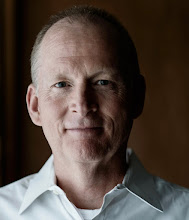 I'm a student of leadership... which I believe to be both a spiritual gift and a honed skill. The following thoughts from Andy Stanley challenged me as a leader. I share them with you in hopes that God will use them in speaking to you and your giftedness as His leader.
I'm a student of leadership... which I believe to be both a spiritual gift and a honed skill. The following thoughts from Andy Stanley challenged me as a leader. I share them with you in hopes that God will use them in speaking to you and your giftedness as His leader.* "Change is preceded by challenge, and challenging the status quo is where leadership begins."
* "As a leader, there is something in you that leans toward evaluating and critiquing everything you bump into organizationally."
* "Deep in your heart you feel that if you were in charge, things would not only be different, they would be better."
* "When you stop challenging, you have stopped leading and begun managing." And that's a problem!
In other words, that tendency to evaluate and critique environments and experiences is part of what distinguishes you as a leader. When God is in control of your life, he can use that gift powerfully to further his Kingdom.
I think there's something in every leader that yearns to try things in new ways, to test the status quo–to challenge the process. If you're a leader, you’ve probably had similar experiences all your life. Leaders are constantly evaluating and critiquing the world around them. There's something in every leader that seeks to understand the process at work behind the scenes.
The rest of the world is quite the opposite. In fact, it's human nature to gravitate toward the familiar. And left to themselves, virtually every person and organization is in a subconscious pursuit of the status quo. Eventually they will find it. And they will work very, very hard to stay there.
In a changing world, familiar is no measure of effectiveness. And the status quo is no benchmark for long-term achievement. That's why the world needs leaders to venture boldly into the unfamiliar and to embrace the uncomfortable–because the best solutions are often found in unfamiliar, uncomfortable places.
The instinct to challenge the process is a fundamental quality of every leader. When God created leaders, he equipped them with an unsettling urge to unpack, undo and unearth methods. This explains your tendency to question everything around you.
It's the reason you have such strong opinions–and such a strong desire to share them. God wired you that way. Deep in your heart you may feel that if you were in charge, things would not only be different, they'd also be better. This is not a problem of arrogance or pride. It's simply the way God wired you. It's a good thing.
Unfortunately, your zeal for improvement isn't always appreciated out in the real world. As a matter of fact, your natural bent for leadership sets you up for resistance from virtually all sides–including other leaders.
And unless you understand the nature of these dynamics, the very instincts that qualify you for greatness can also lead you to disqualify yourself and sabotage your opportunities. Effective leadership means learning to challenge the process without challenging the organization. There's a fine line between the two. But it's a crucial line.
The first line of resistance the leader faces is the organization itself. As we've already mentioned, organizations don't like new ideas. It's enough of a challenge just figuring out the old ones. So the last thing an organization wants is someone suggesting that we need to start all over again with a different process. Your supervisors, advisers, elders, deacons and staff all feel pretty much the same way. Since human nature is to seek a place of equilibrium, change is seen as a disruption of progress.
The second line of resistance you face is from other leaders. You might think you'd find an advocate in this group. But, by nature, when you challenge a concept, you challenge the conceiver. You don't mean it that way, but that can be how it's often perceived.
Many talented leaders have "led" themselves right out of a job because their desire to challenge the process was misunderstood, or perhaps even threatening, to those in charge. While on the other side of the spectrum, many skilled leaders have resigned themselves to conform to the status quo, squelching and squashing their natural instincts because there's no obvious opportunity to be who God made them to be.
As leaders, we must keep a sense of diplomacy without shrinking from our scrutinizing nature. When you stop challenging the process, you cease to be a leader and you become a manager.
Not that there's anything wrong with managers. The world needs those too. But it's a different job description from the leader's. And if you cease to challenge, then you have abdicated your true calling and giftedness in the world. Successful leaders must learn how to alienate a process without alienating the people who created it, or the people who work it faithfully every day.

